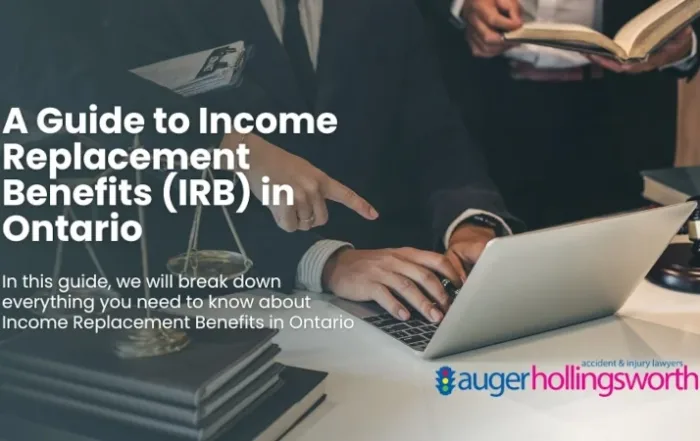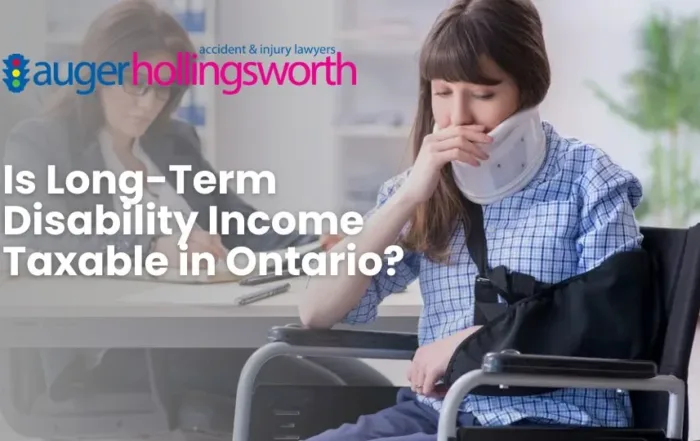Fatal Slip and Falls and Car Accidents: How Ontario Families Can Seek Justice
When a loved one dies suddenly in a car crash, a fall, or another preventable accident, the aftermath is devastating. Beyond the emotional loss, families are often left with unanswered questions: Was someone at fault? Can we make a claim? What will the process look like?
At Auger Hollingsworth, we help families across Ontario hold negligent parties accountable when a fatal accident has occurred. This article explains how wrongful death claims work when someone dies in a motor vehicle accident, slip and fall, or other negligent situation—and how compensation can be pursued under Ontario law.
When Is a Fatal Accident Legally Actionable?
Not every accident leads to a legal claim—but when someone’s negligence or failure to keep others safe causes death, Ontario law allows surviving family members to seek compensation.
Common examples of fatal incidents we see include:
- Motor vehicle accidents caused by speeding, impaired driving, or distracted drivers
- Slip and fall accidents on poorly maintained sidewalks, stairs, or commercial properties
- Unsafe property conditions such as missing railings, ice-covered surfaces, or broken lighting
- Negligent security or supervision, including failure to warn about known dangers
To be successful, a wrongful death claim must show that:
- The defendant owed a duty of care to the deceased.
- That duty was breached through negligent conduct.
- The breach directly caused the fatal injury.
Who Can Make a Claim?
Under Section 61 of Ontario’s Family Law Act, the following family members may be entitled to compensation:
- Spouse or common-law partner
- Children
- Parents
- Siblings
- Grandparents and grandchildren
These claims are typically filed against the at-fault party’s insurance company.
What Damages Can Be Recovered?
Family members may claim:
- Loss of care, guidance, and companionship: A non-financial loss that reflects the emotional and relational void caused by the death.
- Actual expenses: Including funeral costs, travel, therapy, and more.
- Loss of services: If the deceased provided childcare, household duties, or personal care.
- Loss of income: If the family member depended financially on the deceased.
Recent Ontario cases suggest that compensation varies based on the nature of the relationship and the strength of the evidence. Inflation-adjusted ranges for 2025 include:
- $150,000–$170,000 for a parent’s loss of a child
- $80,000–$130,000 for a spouse’s loss
- $50,000–$90,000 for a child’s loss of a parent
- Lower figures for siblings and extended family
Real-Life Example: Moore v. 7595611 Canada Corp.
In the Moore case, a young woman died in a house fire due to a landlord’s failure to maintain working smoke alarms. Her parents were awarded $250,000 each by a jury for their loss. The Court of Appeal upheld the award, emphasizing that there is no cap on non-pecuniary damages—especially where the emotional loss is well-supported by evidence.
However, in judge-alone trials, courts tend to award lower amounts unless the relationship is extremely close and well-documented.
Why Legal Help Makes a Difference
Fatal accident cases can involve complicated investigations, insurance negotiations, and multiple claimants. At Auger Hollingsworth, we help you:
- Prove negligence and liability
- Gather compelling evidence of your relationship to the deceased
- Prepare a strong claim for the full range of losses
- Avoid undervalued settlements from insurers
We understand the stakes—and we fight to ensure your loss is acknowledged and compensated.
Contact Auger Hollingsworth for a Free Consultation
If someone you love has died in a fatal car accident, fall, or negligent incident, you don’t have to navigate the system alone. Let Auger Hollingsworth Accident & Injury Lawyers help you pursue justice with dignity and care.
Call us today for a free, confidential consultation.














